- solen.cz - Drinking regime: why, how much and what to drink? MUDr. Hana Jeligová1, MUDr. František Kožíšek, CSc.1,21State Institute of Health, Prague2Institute of General Hygiene, 3rd Medical Faculty of Charles University, Prague
- pediatriepropraxi.cz - Importance of drinking regime in children's diet, PhDr. Iveta Ondriová1, PhD., MUDr. Anna Sinaiová PhD.2, PhDr. Terézia Fertaľová, PhD.1,PhDr. Jana Cínová, PhD.11 Faculty of Medical Sciences PU v Prešov 2 Perinatology Centre FNsP Prešov
- mayoclinic.org - Water: How much should you drink every day?
- bda.uk.com - The importance of hydration
- nutrition.org.uk - Hydration
- ilcuk.org.uk - pdf - Hydration and Older People in the UK: Addressing the Problem, Understanding the Solutions, Dr Lisa Wilson
The importance of drinking: what is insufficient or excessive fluid intake? + calculation
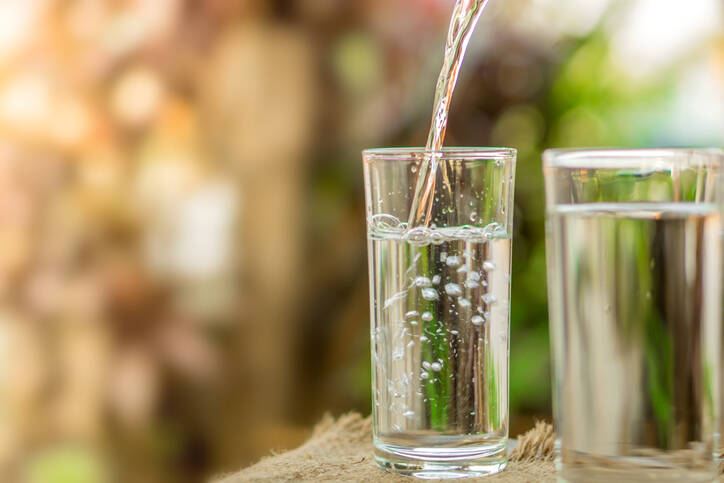
Do you have a good drinking regime? Do you drink a lot or not enough water? What are the appropriate and inappropriate fluids? What influences water requirements and what should we not forget?
Article content
- Lack of water = dehydration
- And how much water is too little or too much?
- Normally expelled from the body...
- How much fluid do we need to drink?
- How do we know if we have not drunk enough fluids?
- Even too much fluid can cause a problem
- Drinking in the workplace
- What fluids are suitable and unsuitable?
You ask:
What is the importance of drinking?
What is insufficient or excessive drinking?
How do I calculate how much water I should drink?
How much water should infants, young and older children, and adults drink?
The human body needs a certain amount of water every day. During hot weather, the requirement increases. The sun, dry air, heat, sweating or increased physical exertion. These are just some of the factors that affect our fluid balance.
Water is the basis of life. We know that. It is also well known that a person cannot survive more than 3 or 4 days without water.
Lack of water = dehydration
Reduced water intake can lead to poor health. Dehydration can occur acutely or chronically. Sudden fluid loss and inadequate replacement of excreted fluids will occur quickly.
In the case of long-term, albeit subtle, inadequate fluid replenishment, the risk of more serious health problems is common.
Dehydration is particularly dangerous in childhood. In old age, the perception of thirst is reduced, which can lead to chronic problems.
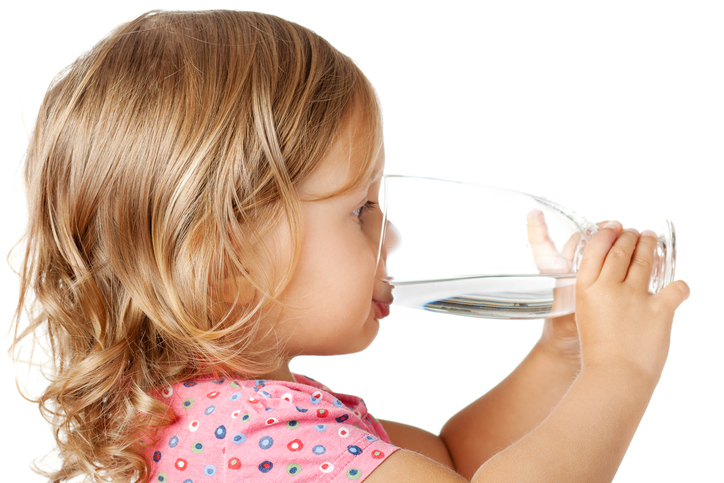
Typical symptoms of dehydration include:
- headache
- heart palpitations
- tingling in the fingers, limbs or lips
- fainting and collapse
- fatigue
- loss of performance
- drowsiness
- irritability and reduced mental resilience
- feeling cold
- dark urine and urinating less
- dry skin
With prolonged deficiency also occurs:
- joint pain
- constipation
- abdominal pain, especially around the stomach
- aggravation of chronic diseases
- impaired kidney function
Read interesting information in magazine articles:
What are the most common symptoms of dehydration?
Dehydration in children can be dangerous
And how much water is too little or too much?
The human body has different requirements for each person. And the same is true for fluids.
How much water is needed for each person is individual.
It is not possible to determine how much water everyone should drink. The amount of water needed varies depending on age, gender, temperature or activity. We know other factors that influence adequate hydration.
14 basic factors that affect fluid intake needs:
- Age
- Gender
- body weight
- body temperature
- current state of health
- current state of hydration, hydration, body
- disease, acute or chronic
- inflammation, infection
- diarrhoea or vomiting
- heart failure
- kidney failure
- diabetes
- diet, its composition and quantity
- content of salts, minerals, water, protein, sugar or energy, calories
- alcohol
- environmental temperature
- environmental humidity
- air flow
- physical activity
- environment and physical exertion = large interaction
- clothing and its quality
- air
- tight and airless
Normally expelled from the body...
Water is the medium in which metabolism takes place, it provides oxygen and nutrients to the cells. It is important for the proper functioning of the cardiovascular system or the kidneys.
The kidneys filter dangerous and toxic products of metabolism from the blood. These must be eliminated from the body. Maintaining a proper fluid balance is essential for all vital functions. You can also read about homeostasis in our magazine article, which refutes the claims of acidification.
Approximately 2300-2500 ml of body water (2.3-2.5 litres) is eliminated from the body each day, at normal temperature and activity.
Approximate estimate of fluid loss from the body:
- 800-1400 ml of fluid through urine
- 600-800 ml of water vapour during respiration
- 500 ml by perspiration and through the skin
- 100 ml through faeces
Fluid loss can be 3 to 5 times higher with increased exertion and in hot environments.
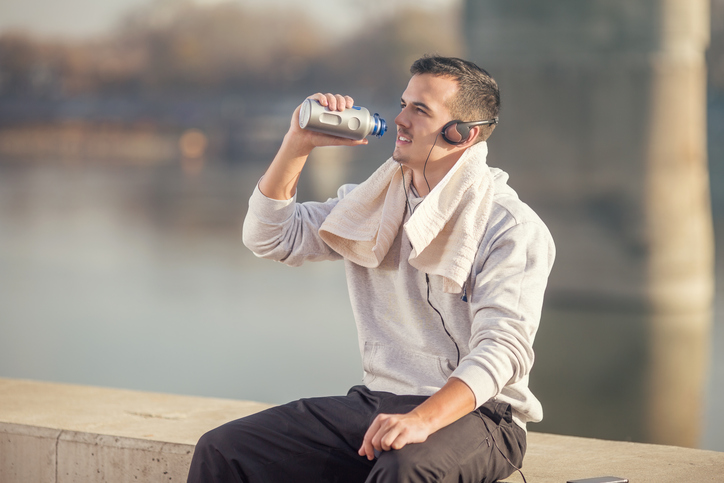
Other and quite common things in our lives also affect the increased excretion of water from the body. For example, coffee or tea has a diuretic effect. Alcohol is the same.
Beer is a liquid, but 1.5 litres of beer = about 2500 ml of urine.
This means a negative fluid balance.
Not only the hot and cold weather, but also the cold air from the air conditioner dries out the mucous membranes. Read the articles in the magazine about the effect of air conditioning on our health and how to use air conditioning properly so that it does not harm us.
If we were to go further and calculate the fluid loss in specific conditions, we would get up to maybe 6000 ml of fluid. And losing 6 litres of fluid is already quite significant.
How much fluid do we need to drink?
It is best to start first thing in the morning.
After waking up from sleep, it is advisable to drink 300-500 millilitres of water. Plain or table water is best. After that, you should also think about drinking throughout the day.
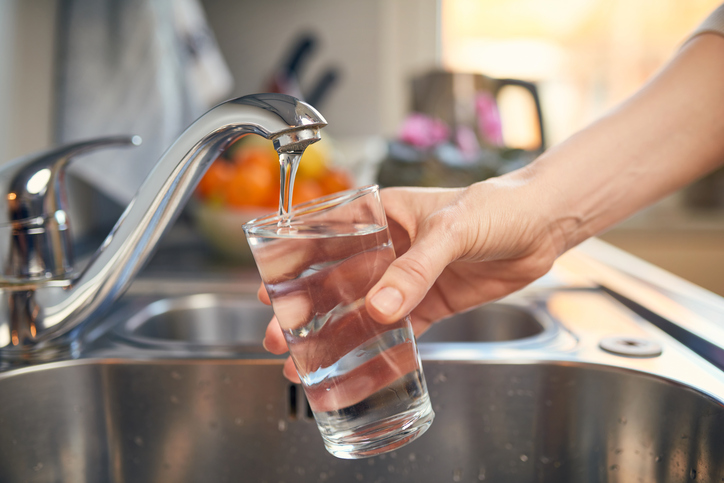
If we are planning a longer car journey or know that we will not be able to urinate, we should drink an hour before we leave.
The human body will excrete approximately 2.5 litres of water, and should certainly take in that much.
During metabolism, the body produces about 300 ml of body water. It takes in up to 900 ml through food.
The table shows the daily water requirements by age
| Age period | Amount of fluid per day |
| Infants | 120-180 ml per 1 kg of weight |
| 1 to 6 years | 100-125 ml of water per 1 kg of body weight |
| up to 12 years | 70-100 ml per 1 kg of weight |
| older children and young people | 40-60 ml of fluid per 1 kg of weight |
| adults | 20-45 ml of water per 1 kg body weight |
An adult should drink about 1400 to 3150 ml of fluid at 70 kg body weight. The recommendation is to drink about 2.5 litres.
This amount refers to ideal conditions, which include an ambient temperature of around 22 °C, a relative humidity of around 60 %, no increased physical exertion and little perspiration.
It's better to drink little and often. So, for example, 10 two-decade glasses of water throughout the day.
Example...
In the morning, after waking up, about 300 ml. Breakfast half an hour later. After breakfast, do not drink for about an hour. Followed by 2 decilitres of water, every hour. Before the main meal, drink with a sufficient interval of time.
After the main meal we should not drink for about an hour, if, then a maximum of 2 decilitres of liquid.
About an hour after lunch is followed by 200 ml of liquid again, once every hour until the evening. Before and after dinner the same rule applies as for lunch.
The main meal should not be washed down with a lot of water. To avoid digestive problems.
Of course, we don't pour 10 or 20 glasses in front of us. We can also pour water from a bottle into a glass. This will help to better monitor our fluid intake during the day.
A proper drinking regime will also help with weight loss.
About an hour before going to bed, we should not drink large amounts of liquids. To avoid the urge to urinate during sleep.
There are various calculators available on the internet to calculate the drinking regime according to the body weight or even apps to track the drinking regime. It is necessary to think about the individual disposition and the current circumstances and influencing factors.
How do we know if we have not drunk enough fluids?
We describe the feeling of thirst below. Ideally, we should not feel it at all.
We have other ways of knowing if we have drunk enough. One is our urine. Are we urinating enough? And what colour is our urine? Is it light yellow or rather dark?
What dark urine means is discussed in the article on this symptom.
If there is insufficient hydration, it will be dark, may smell more and be less in quantity.
Another indicator is our skin. The skin will be drier. In addition, it is possible to see increased turgor. Well hydrated, it has the right tension and flexibility. Long-term dry skin is less elastic.
Feeling thirsty
Feeling thirsty is a biological indicator of a negative fluid balance. It occurs at 1-2% fluid loss.
It is not an early warning.
It is recommended to drink regularly throughout the day, so as not to feel thirsty. When searching for information, one may also come across claims by doctors that recommend drinking fluids only when feeling thirsty.
I won't drink at work or school so that I don't have to urinate
Drinking is as important at work and school as at other times. Avoiding urination is inappropriate. Dehydration causes fatigue, reduced concentration and performance.
Intellectual and memory functions also deteriorate. One becomes irritable, nervous.
Feeling thirsty in children
Infants or toddlers cannot express the fact that they are thirsty. They need to be offered fluids throughout the day. In the first 6 months of life, milk formula is sufficient. It provides them with enough nutrients and fluids.
The situation changes, of course, in the event of illness, increased body temperature, vomiting or diarrhoea.
Breast milk contains 90% water.
Even young children do not yet understand the need to drink. They often forget to drink when playing.
This is especially dangerous in the warmer summer temperatures. In addition to dehydration , there is also the risk of heat stroke or heat exhaustion.
It is the parents' responsibility to ensure regular water intake and also to choose the right kind of liquids.
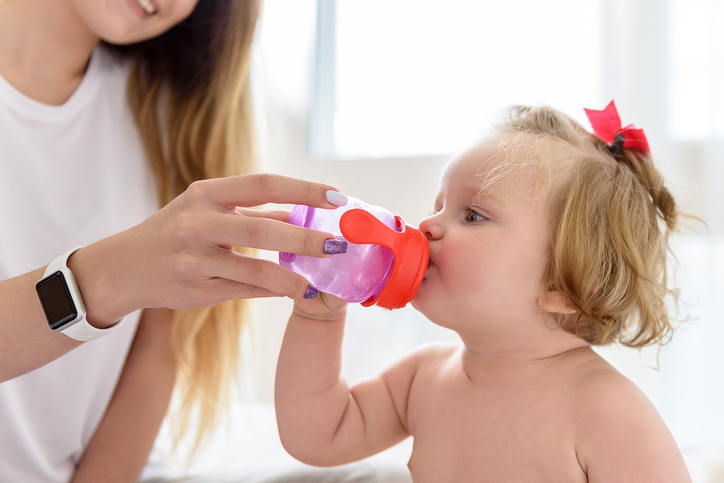
Drinking patterns for pregnant women and breastfeeding mothers
Pregnant women should not forget their water intake either. They are at risk of constipation and, of course, dehydration. Water is also important for the production of breast milk.
Mineral and salt or sodium-rich drinks are not suitable in this period. They worsen swelling or increase blood pressure, which leads to pre-eclampsia.
Caution in older age
Seniors have a problem with drinking water, and this is because they have a reduced sense of thirst. But they often avoid drinking water because of their health problems.
For example, men with enlarged prostates do not drink so they do not have to go to urinate. For women, urinary incontinence is a common problem.
For both sexes, it's when they have a heart condition, when they're on anti-waterlogging medication. They're afraid to drink so they don't have swelling and a waterlogged body. Which is a problem.
Disease and water
With various illnesses, the need for fluid intake changes. Perhaps the most well-known example is various infectious diseases that induce vomiting, diarrhea or fever.
In these cases, fluids are lost from the body in an uncontrolled manner. If replenishment is insufficient or impossible, dehydration sets in. Hence the general deterioration in health.
Read also articles about:
Summer diarrhea and not only spoiled foods or moments
What is the right diet for diarrhea, constipation or vomiting?
How to manage diarrhea in children with discretion
A special disease is diabetes insipidus, dysentery. In it, the body excretes up to 20 litres of urine per day. One of the symptoms of this disease is an exaggerated feeling of thirst.
The opposite is the group of diseases in which fluid intake is deliberately restricted, as determined by the doctor. This is the case, for example, in chronic heart failure or when kidney function is insufficient and dialysis is needed.
Even too much fluid can cause a problem
Just like a deficiency, too much water makes a problem.
Do we drink a lot of water because of media or environmental pressure, because it is fashionable? There is also a psychological dependence on water, where an artificial sense of thirst overrides the need.
There is also what is called water intoxication.
Water intoxication can occur when drinking as little as 10 litres of fluid in a few hours. Too much water enters the blood, where it upsets the mineral balance. Excess water troubles the cells, but also the organs. The most serious is the swelling of the brain, which threatens the life of the person.
It is reported that in one day the body is able to take in up to 15 litres of water. If the kidneys cannot eliminate this excess, there is a problem.
The worst is drinking too much fluid too quickly. Excretion of more than 1 litre of urine per hour is problematic.
We should not drink more than 1 litre in an hour.
Water intoxication has the following symptoms
- headache
- vomiting
- disorientation, confusion
- high intracranial pressure
- swelling of the brain
- impaired consciousness to coma
- death if left untreated
Drinking in the workplace
Fluids and their regular intake are also important at work, especially on hot days when the temperature rises above 30 °C. Employers should ensure that their employees get enough fluids and minerals on hot days.
As the body loses fluids and minerals at work and especially during heavy physical exertion.
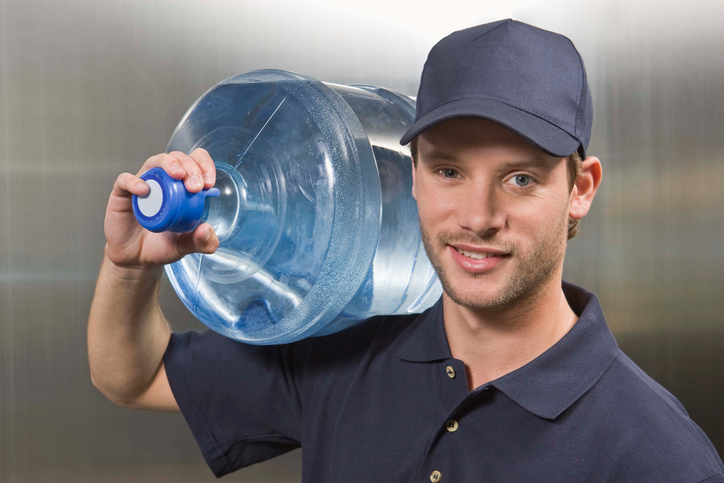
What fluids are suitable and unsuitable?
What is the best water, you ask?
Spring water and pure tap water.
Water for children, i.e. baby or filtered water, is also among the best. Table or mineral water is also suitable, but with low mineral content. Fruit, herbal teas or green, white or rooibos tea are also good choices.
Coffee, black tea, milk, cocoa, vegetable and fruit juices and soups do not count towards the amount of fluid intake per day.
We also try to give you an idea of appropriate and inappropriate liquids in the following section:
What to drink:
- Pure water
- spring and table water
- filtered water
- baby water
- slightly mineralised
- carbon dioxide-free
- fruit/vegetable juices diluted with water
- white, green, rooibos tea
- herbal teas
In smaller volume:
- medium mineralised water
- dissolved solids content 500-1500 mg/l
- carbonated water
Limit:
- Alcohol
- sweetened beverages
- cola drinks
- sweetened mineral water
- energy drinks
- nectars
How to drink:
- 300-500 ml first thing in the morning
- about 2.5 litres per day
- every hour or less
- one hour after meals
- do not drink water with meals
- max 2 dcl
- during exertion and sport
- hypotonic liquids gradually 4 glasses
- monitor the amount and colour of urine
Let's look together at all the summer problems: Our health in summer - sun, heat, injuries and illnesses
Interesting resources










